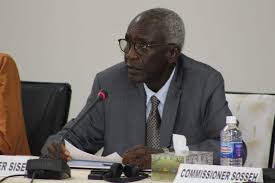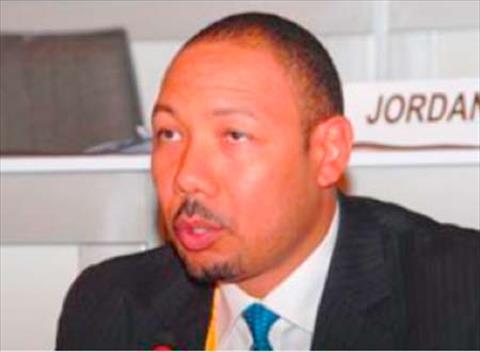The Gambia Truth, Reconciliation and Reparations Commission (TRRC) public hearings have generated a counter accusation that the Commission is a mere witch-hunt against ex-President Yahya Jammeh.
Baba Galleh Jallow, TRRC Executive Secretary, said Wednesday a portion of this witch-hunting charges had it that some witnesses appearing before the Commission were bribed or threatened to lie against the former president.
“This narrative is clearly mistaken because, by definition, to witch-hunt is to go after someone in a hostile manner out of mere suspicion, blatant impunity and just because you can. That is certainly not what the TRRC is doing,” he said.
He added: “The TRRC is actively investigating twenty two years of real Gambian history, documenting the human rights violations that occurred during that period, identifying the various institutional, administrative, legislative and policy failures that made them possible, actively offering tangible, life changing service to victims, and generating within the Gambian public space a robust conversation on what happened here and how we must never allow its recurrence.”
Jallow stressed that these TRRC activities were clearly not reducible to mere witch-hunting.
According to him, the TRRC is actively investigating twenty two years of real Gambian history, documenting the human rights violations that occurred during that period, identifying the various institutional, administrative, legislative and policy failures that made them possible, actively offering tangible, life changing service to victims, and generating within the Gambian public space a robust conversation on what happened here and how we must never allow its recurrence.
“It is a verifiable record of public interest that so far the TRRC has generated a wealth of historical material on several important events including the July 1994 coup, the November 11, 1994 incident, the January 1995 arrests of former AFPRC junta members Sanna Sabally and Sadibou Hydara”.
He also referred to the June 1995 murder of former finance minister Ousman Koro Ceesay, the 1996 Denton Bridge incident involving UDP supporters and security forces, the April 10/11 2000 student demonstrations in which at least 12 children and one Red Cross volunteer were killed.
Jallow also pointed to “violations against the media and the persecution of journalists including the December 2014 murder of Deyda Hydara, the activities of the Junglers, and circumstances surrounding the deaths and disappearances of many individual victims, among other things”.
He said the narrative of the TRRC as a joke, a circus, and a money-wasting exercise in futility had gained surprising currency in recent days during and after Edward Singhateh’s appearance before the Commission.
Public outrage at Singhateh, former Junta vice-chairman seems to morph into outrage against the TRRC for not having him immediately arrested and charged with the murder of former Finance Minister Ousman Koro Ceesay.
Singhateh, former vice-president to the ECOWAS Commission, admitted to The Gambia’s Truth Reconciliation and Reparations Commission that he personally arrested two men on suspicion of staging a coup – one of whom was tortured, prosecuted and sentenced to nine years in prison while the other died in detention.
Sana Sabally, the Junta first vice-chairman, was held in prison for nine years while Hydara died in custody.
“Gambian social media circles are replete with strongly worded calls for the TRRC to have Edward Singhateh arrested or risk losing credibility. Some of these calls are clearly made by people who do not fully understand the mandate of the TRRC. Some of the calls, surprisingly, are made by Gambians familiar with the TRRC Act and the general workings of truth commissions.
“This public outrage is understandable. But outrage must not be allowed to trump reason, or inspire us to insist on the TRRC acting outside of its mandate or doing things that, in the final analysis, will seriously compromise its work,” Jallow said.





